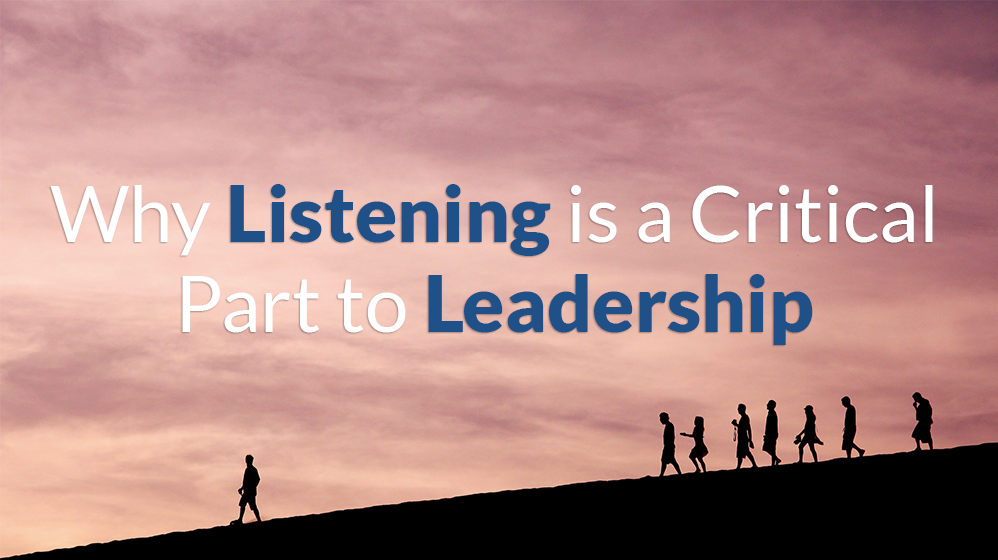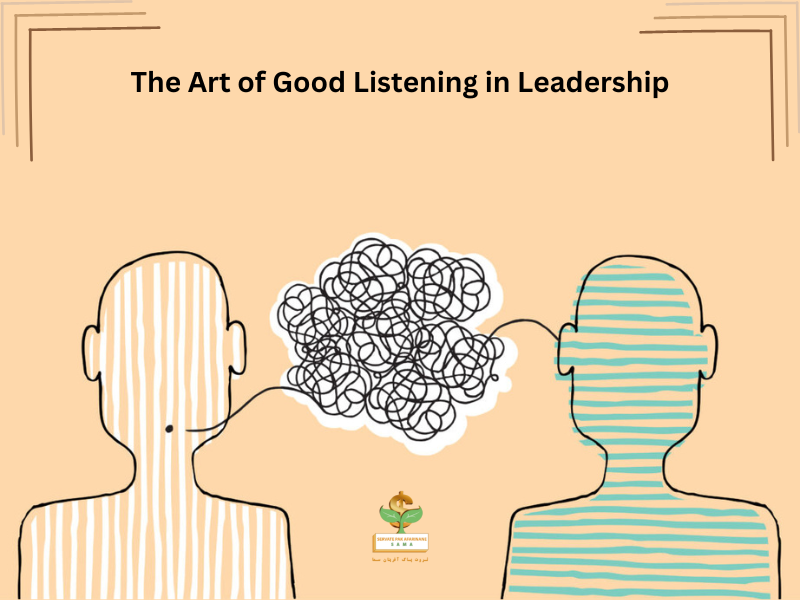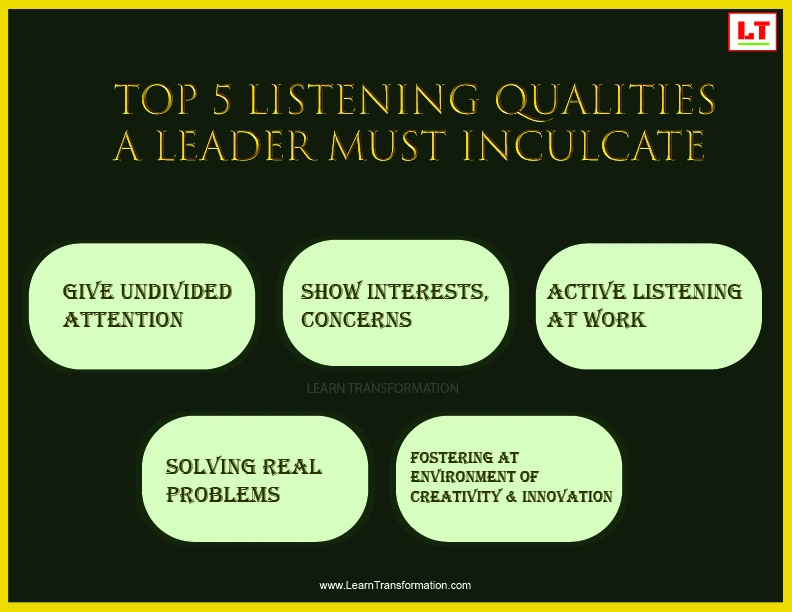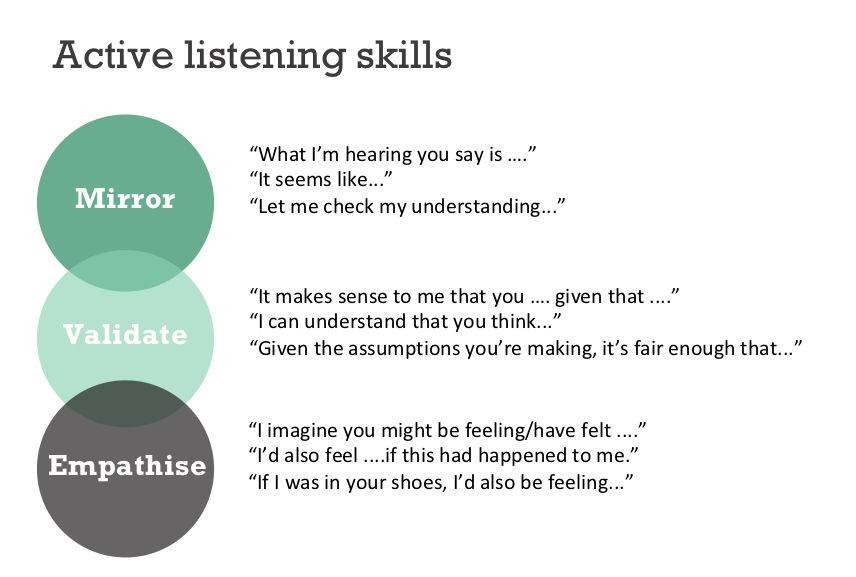Importance Of Listening In Leadership

Imagine a bustling office. Phones ring, keyboards clack, and conversations overlap. Yet, amidst this symphony of activity, one leader stands out, not by raising their voice, but by leaning in, truly listening. Their eyes focus intently on the speaker, absorbing not just the words, but the unspoken emotions and concerns behind them.
At the heart of effective leadership lies a deceptively simple skill: listening. It's more than just hearing what's being said; it's about understanding, empathizing, and responding in a way that fosters trust, collaboration, and innovation. This article explores the profound importance of listening in leadership and how it shapes a more positive and productive work environment.
The Power of Active Listening
Active listening goes beyond passive reception of information. It involves paying attention, showing that you are hearing, providing feedback, deferring judgment, and responding appropriately. This creates a safe space for open communication, where individuals feel valued and understood.
According to a study by the Harvard Business Review, employees who feel heard are more likely to be engaged and productive. They also report higher levels of job satisfaction and are more committed to their organizations. When leaders actively listen, they signal that they value the opinions and perspectives of their team members.
Building Trust and Rapport
Listening is a cornerstone of trust. When leaders take the time to truly understand their team members, they build stronger relationships. This, in turn, fosters a sense of loyalty and mutual respect.
Brené Brown, a renowned researcher and author on vulnerability and leadership, emphasizes that trust is built in small moments. "Trust is built in vulnerability," she says, and listening is a critical component of creating a vulnerable environment where people feel safe to share their thoughts and ideas. When employees trust their leaders, they are more willing to take risks, innovate, and contribute their best work.
Improving Decision-Making
Effective listening provides leaders with a more comprehensive understanding of the challenges and opportunities facing their organizations. By gathering diverse perspectives, leaders can make more informed decisions that are aligned with the needs of their stakeholders.
Consider a scenario where a team is struggling to meet a deadline. A leader who actively listens will seek to understand the root causes of the problem. Are there resource constraints? Are there skill gaps? Are there communication breakdowns? By listening to the concerns of their team members, the leader can identify the underlying issues and develop effective solutions.
Fostering Innovation and Creativity
Listening encourages a culture of open communication and idea-sharing. When employees feel heard, they are more likely to voice their opinions, even if they differ from the prevailing view. This can lead to breakthroughs and innovative solutions that might otherwise be missed.
Forbes highlights that companies with a strong culture of listening are more likely to attract and retain top talent. Employees want to work for organizations where their voices are valued and where they have the opportunity to contribute to meaningful change. Listening is a powerful tool for creating a more inclusive and engaging work environment.
Cultivating a Listening Culture
Creating a culture of listening starts at the top. Leaders must model the behavior they want to see in their teams. This includes actively soliciting feedback, creating opportunities for open dialogue, and celebrating diverse perspectives.
Organizations can also invest in training programs that teach employees how to be better listeners. These programs can help individuals develop skills such as active listening, empathy, and nonverbal communication. By prioritizing listening, organizations can create a more positive and productive work environment for everyone.
Practical Tips for Leaders
"The most basic of all human needs is the need to understand and be understood. The best way to understand people is to listen to them." - Ralph Nichols
Here are some practical tips for leaders who want to improve their listening skills:
- Pay attention: Focus on the speaker and avoid distractions.
- Show that you are listening: Use nonverbal cues such as eye contact and nodding.
- Provide feedback: Summarize what you have heard to ensure understanding.
- Defer judgment: Avoid interrupting or formulating your response before the speaker has finished.
- Respond appropriately: Ask clarifying questions and offer support.
Listening is not merely a soft skill; it's a strategic imperative. In today's complex and rapidly changing world, leaders must be able to listen effectively to understand the needs of their stakeholders, foster innovation, and build trust.
By prioritizing listening, leaders can create a more positive, productive, and ultimately, more successful organization. So, the next time you find yourself in a conversation, remember the power of truly listening. You might be surprised at what you discover.








.png?width=1200&height=676&name=The Listening Leader 12 Leadership Roles of Effective Leaders (1).png)









